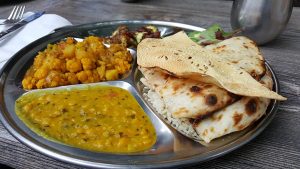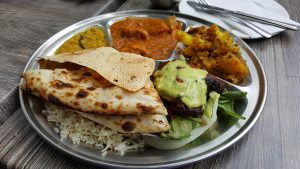Mumbai
More Than 6000 People Being Fed Every Day At A Ganesh Pandal In Mumbai
The Gowd Saraswat Brahman Ganesh Mandal (GSB) of the Wadala Ram Mandir is organising the Ganpati festival and is feeding the devotees as well. The Free Press Journal reports that breakfast, lunch or dinner, depending on when a devotee comes, is fed to them every day throughout the Ganeshotsav which goes on for eleven days.
Food For Thought
“More than 6,000 people visit the place every day and have food as prasad during Ganeshotsav. Usually, devotees after fulfilment of their iccha (wishes) donate foodgrains and other items equivalent to their weight to the Ganesh mandal, which is then cooked and served to devotees as prasad,” Anant Sudham, a pujari at the Wadala Ram Mandir told the Free Press Journal.
The report further says that the free food service starts in the mornings and goes on till late in the night. And on the 11th day of the festival, 14 items of food are made. “Twenty chefs from Udupi in Karnataka come every year, to cook at GSB Mandal. At present, the mandal has three different kitchens to take care of food requirements. In one kitchen, food is cooked for Brahmins, while the second kitchen caters to the public, while there is a third kitchen for mandal sevaks. The eating area too is similarly apportioned,” the pujari said while speaking to the Free Press Journal.
Food For One And All
“There is no discrimination, the three kitchens are meant to make work easy. An ordinary man is not restricted from having food at any of these places. Only after experiencing the huge crowds who visit every year, space management has been done to avoid any untoward situation,” explains Subhash B Pai, a spokesperson for the GSB mandal to the reporter at the Free Press Journal.
“Since the mandal is managed by Gowd Saraswat Brahmins from Karnataka, who are Konkani by origin, the food is usually cooked in Konkani style. The menu includes rice, dal, pumpkin sabzi, rasam, and a jaggery payasam, which is first offered to the lord as bhog and later, to the devotees as prasad,” he added.






















